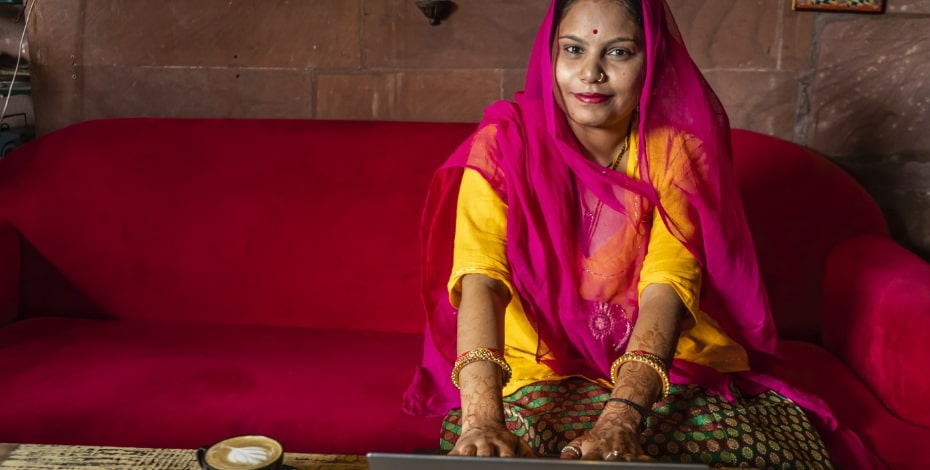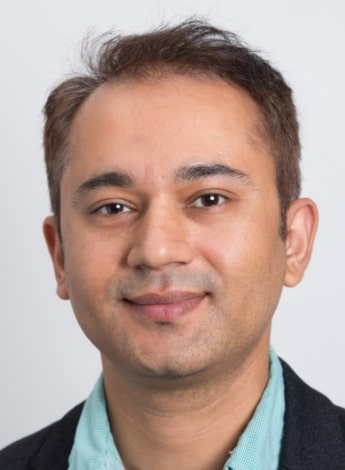
Supporting research from low-income and middle-income countries

JOURNAL OF PHYSIOTHERAPY Editorial lead author Dr Saurab Sharma answers a few questions on the benefits of research from low-income and middle-income countries. This is followed by Q&As with the lead authors of two other papers from the January issue.
Why do we need clinical research to be conducted in low- and middle- income countries?
Approximately 85 per cent of the world’s population lives in low- and middle-income countries (LMIC).
The sociocultural profiles of people living in these countries are different compared to high-income countries such as Australia.
It’s a very different cultural group with a different economy, cultural values and beliefs.
Most of the time, research conducted in the Western world, which is around 95 per cent of the world’s research, does not translate well into our context and our cultures.
So to inform local clinical practice and policy, we need local research because generalisability of research from elsewhere is not possible.
What barriers are there to conducting high-quality research in LMICs?
The greatest barrier is that research isn’t considered a priority in many LMICs yet because the key priority at the moment for medicine, physiotherapy and clinical degrees is clinical practice.
We train clinicians to treat people who need care and research isn’t at the top of the agenda within universities in many LMICs.
There isn’t a focus on evidence-based practice, especially in medicine, nursing and physiotherapy in many countries.
Most people learn and reference from traditional textbooks, most of which are either obsolete or outdated and written by clinicians based on their own experience.
The reading of research for many clinicians (and students) isn’t a common practice in many contexts.
Funding is a major problem, because there isn’t much.
For some countries, there isn’t any funding at all.
What about barriers to publishing high-quality research in LMICs?
One widely known barrier is language.
Writing academic papers can be daunting, especially when writing in a non-native language.
Researchers in LMICs who do not speak English as their first language find it especially challenging to write journal articles in English.
They also lack local support to improve their writing skills.
The second barrier relates to the differences in research priorities in LMICs and high- income countries.
This can lead to reviewers and editors to evaluate research in these countries as ‘unimportant’ or lacking ‘novelty’.
Publishing research in general is also difficult because many LMICs do not prioritise research, there is a lack of research funding, no research culture, limited awareness of research and no research workforce.
How does researchers’, authors’ and editors’ behaviour need to change to support greater research in LMICs?
Researchers in LMICs are frequently the targets of predatory publishers.
As a consequence, they publish their work in predatory journals.
The researchers see predatory journals as low-hanging fruit, despite costs associated with publication, because the publishing requirements are easier to meet while the publication process is often swift in contrast to (international) peer-reviewed reputable journals.
Also, some editors/reviewers of international peer-reviewed journals deem research from LMICs to have local relevance and impact only and therefore flag them as more appropriate for local journals.
The major problem with this is that most local journals are not indexed and are subsequently undiscoverable through traditional databases (eg, PubMed).
Publishing in these non-indexed local journals contributes to duplicated research and therefore research waste.
The international research community should facilitate and support high-quality research from LMICs so that this research can have both local and international impacts.
Does anyone else’s behaviour need to change (eg, funders, universities, peer reviewers)?
Journals should consider equity, diversity and inclusion within the editorial board—not only in terms of gender and race but also diversity based on national economies.
Editors who understand local research contexts are better able to make informed editorial decisions.
Where possible within the scope of the journal, editorial decisions should be made considering research priorities from the originating country and the impact of the research there.
Early career researchers may initiate collaborations with experienced local and international researchers with shared interests.
Experienced researchers may extend mentorship to junior researchers both locally and internationally, serve on a journal editorial board and volunteer to review papers.
Funders and universities should prioritise research with targeted research agendas and funding to support high-quality research.
They should also invest in developing and supporting research workforce within the institution and country.
Research should be a part of the university culture where high-quality research is incentivised.
Are there resources available to support the research community in enacting these changes?

Dr Saurab Sharma
One resource to support early career researchers is available through AuthorAID.
Authors may choose to be listed as a mentor or a mentee and provide or receive mentorship at various stages of research including planning, analysis, writing, editing and proofreading.
>>Dr Saurab Sharma is a postdoctoral research fellow at the University of New South Wales and Neuroscience Research Australia in Sydney. He is supported by the International Association for the Study of Pain John J. Bonica Postdoctoral Fellowship.
© Copyright 2024 by Australian Physiotherapy Association. All rights reserved.





